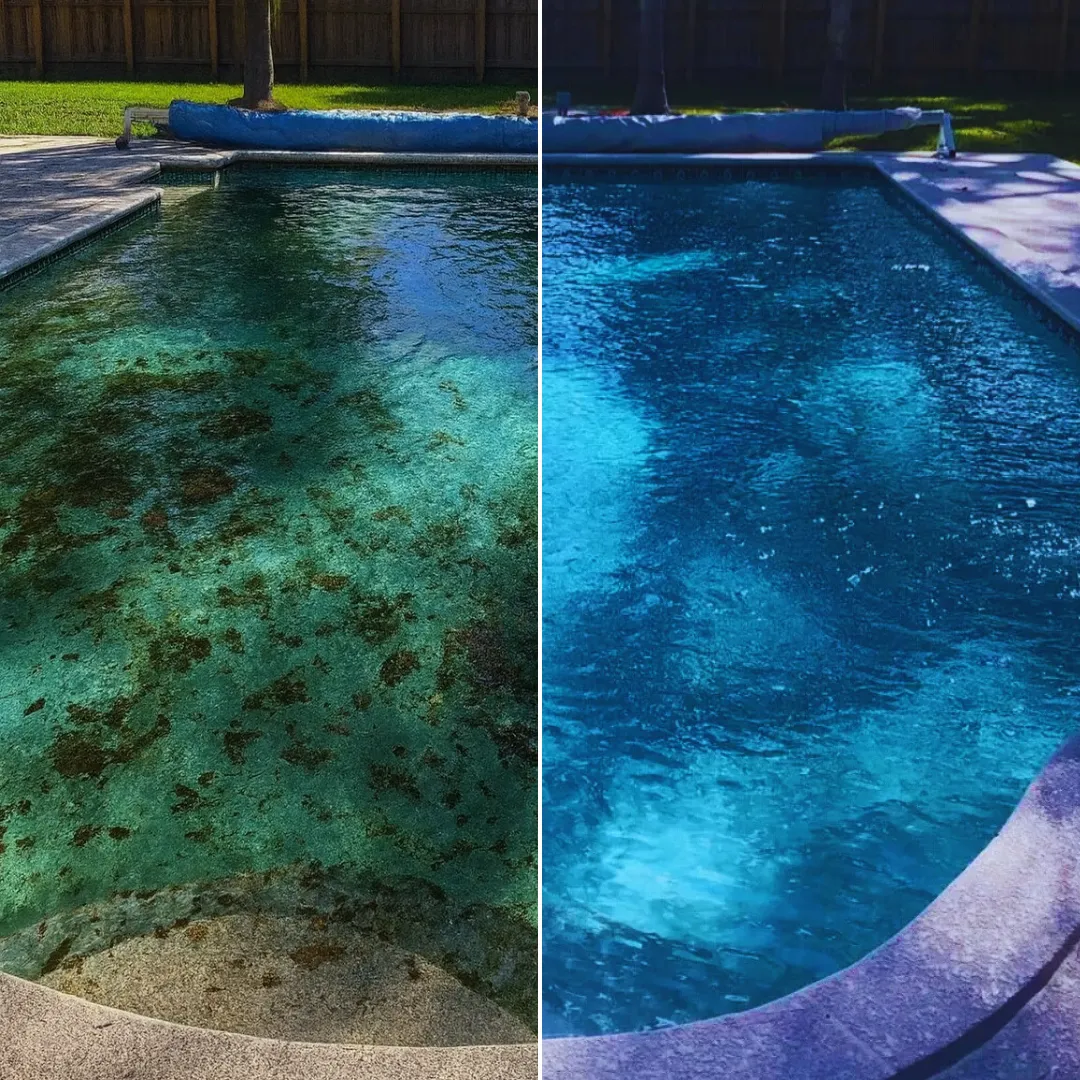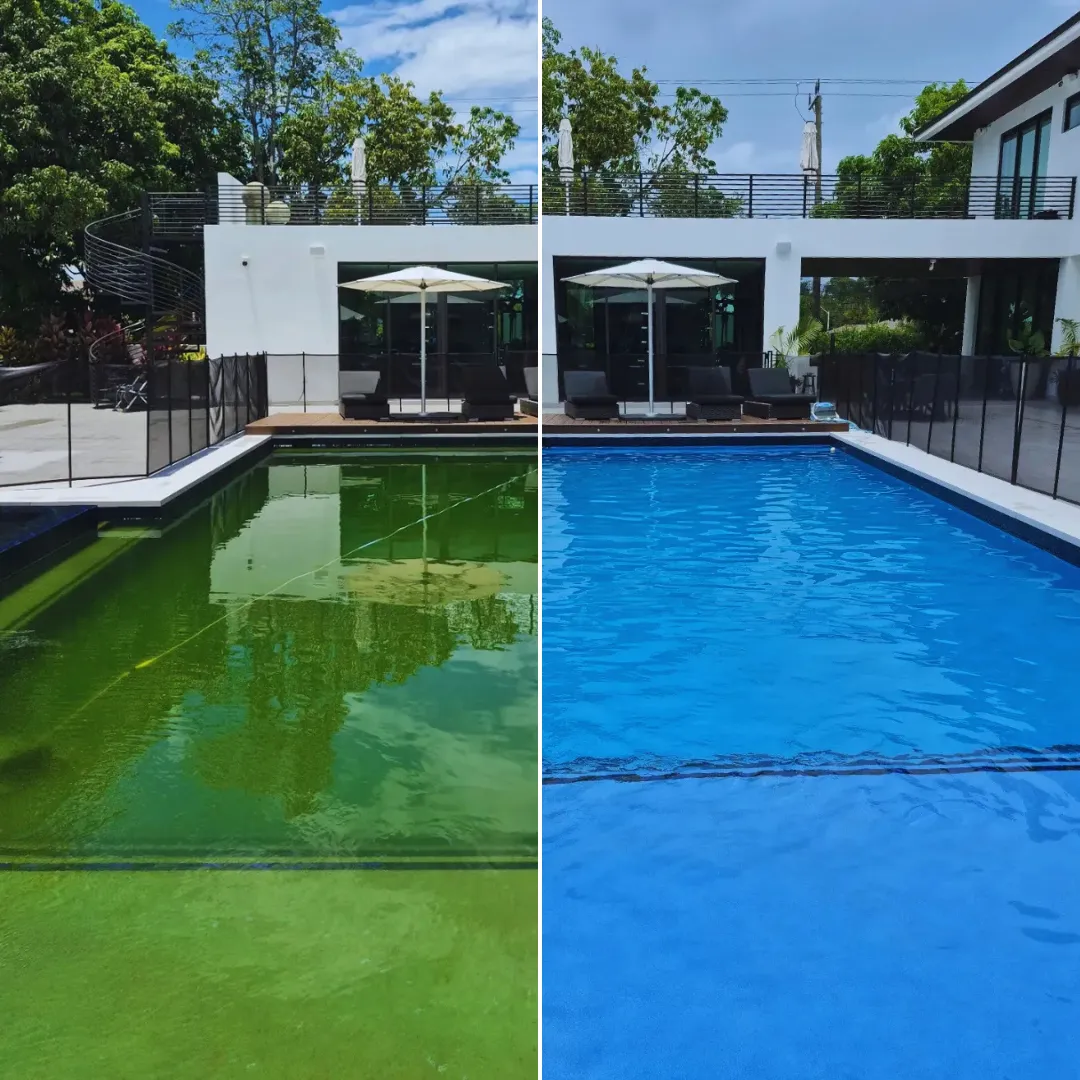Shock treatment is the process of super-chlorinating your pool water to break down:
In high-use commercial pools, these compounds build up quickly—especially during peak season or rainy months in Miami-Dade.
Regular shock treatments prevent these issues before they impact guest satisfaction, health inspection scores, or operational downtime.
We treat pools with exact dosing, safety protocols, and CPO-certified expertise: not just "dump-and-go" solutions.
Our pool shock services are available for:



Pool shock treatment is the process of adding high levels of chlorine or non-chlorine oxidizer to eliminate contaminants like algae, bacteria, and organic waste. In commercial settings, where swimmer load is high and hygiene is critical, regular shock treatments are essential to maintain water safety, clarity, and Department of Health compliance.
Due to South Florida’s heat, humidity, and frequent rain, we recommend shocking commercial pools weekly or bi-weekly, depending on usage levels. Events like storms, heavy bather loads, or algae presence also trigger the need for immediate shock treatment.
For commercial properties, we typically perform pool shock treatments after-hours or during off-peak times to avoid service disruption. Safety is our priority: swimmers should not enter the pool until chlorine levels return to safe operating ranges.
Yes. We offer saltwater-compatible shock treatments that are effective in controlling algae and sanitizing the pool without disrupting your saltwater generator. Our technicians tailor the method based on your system.
Absolutely. M&M Pool & Spa Services provides detailed service logs, chemical reports, and shock treatment records: perfect for hotels, HOAs, and public pools that must comply with Miami-Dade health regulations.
Common signs include:
Cloudy or green water
Strong chlorine smell (often a sign of chloramine buildup)
Skin or eye irritation among swimmers
Failing to meet health inspection chemical ranges
If any of these occur, contact us immediately for emergency shock service.
Simply call us at +1 (786) 972-8875 or fill out our online form. We’ll evaluate your facility and design a custom weekly pool cleaning and maintenance plan with pool shock treatment when needed in your commercial pool/spa in Miami-Dade.